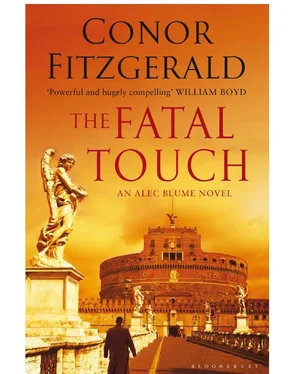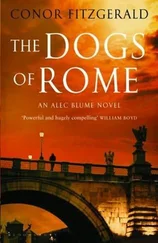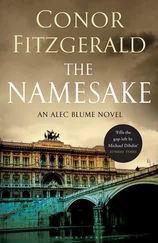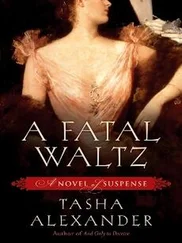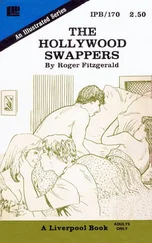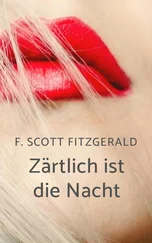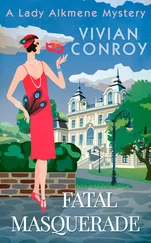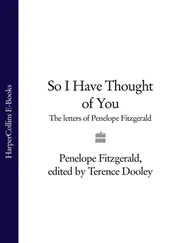Conor Fitzgerald - Fatal Touch
Здесь есть возможность читать онлайн «Conor Fitzgerald - Fatal Touch» весь текст электронной книги совершенно бесплатно (целиком полную версию без сокращений). В некоторых случаях можно слушать аудио, скачать через торрент в формате fb2 и присутствует краткое содержание. Жанр: Полицейский детектив, на английском языке. Описание произведения, (предисловие) а так же отзывы посетителей доступны на портале библиотеки ЛибКат.
- Название:Fatal Touch
- Автор:
- Жанр:
- Год:неизвестен
- ISBN:нет данных
- Рейтинг книги:3 / 5. Голосов: 1
-
Избранное:Добавить в избранное
- Отзывы:
-
Ваша оценка:
- 60
- 1
- 2
- 3
- 4
- 5
Fatal Touch: краткое содержание, описание и аннотация
Предлагаем к чтению аннотацию, описание, краткое содержание или предисловие (зависит от того, что написал сам автор книги «Fatal Touch»). Если вы не нашли необходимую информацию о книге — напишите в комментариях, мы постараемся отыскать её.
Fatal Touch — читать онлайн бесплатно полную книгу (весь текст) целиком
Ниже представлен текст книги, разбитый по страницам. Система сохранения места последней прочитанной страницы, позволяет с удобством читать онлайн бесплатно книгу «Fatal Touch», без необходимости каждый раз заново искать на чём Вы остановились. Поставьте закладку, и сможете в любой момент перейти на страницу, на которой закончили чтение.
Интервал:
Закладка:
“Very funny,” said Caterina. She turned her back on him and pulled the sheet tighter around her shoulders. “I’m interested in finding out how he came to be in Italy, what it was like for him to spend his life here, a stranger in a strange land. I want to know what happened to his parents, whether he saw them again. I want to see how he started off and ended up alone.”
Blume pulled up the bedcover and wrapped it over the sheet and around her shoulders. “No, really,” he said. “He did. He walked through France into Italy.”
“That’s the next bit?”
“Yes,” said Blume. He left the room and came back carrying the first notebook, climbed back into the warmth beside her. He opened it at the beginning, and started turning the pages until he found the place he wanted.
“This is where we were.”
Caterina closed her eyes. “Read it, Alec. Out loud and slowly.”
“After London, I went back to Ireland for a few months, but it did not work out. There was nobody there for me, and all I did was spend the little I had saved drinking pints of plain in Sinnnotts pub. It was one golden afternoon there, when I was on my fourth pint, that I conceived of the idea of walking away from it all. Literally walking away.
“No one believes me when I tell them I walked to Paris and then Rome, but, with the help of one ferry boat, that is just what I did. The walking started in Normandy, but the beginning of my journey was a freezing cold morning of drizzle as I left Killiney Hill Station for Bray to catch the mid-morning train down to Rosslare in Country Wexford, where that evening I boarded the ferry that would bring me to Cherbourg. It was June, but the Atlantic was still in a swollen and wintry mood, and rolled me back and forth across the lounge bench inside where I tried to sleep, without success, and doused me in icy spray when I went up on deck to vomit, with great success.
“We docked in Cherbourg at lunchtime, and having completely emptied my stomach of all content during the night, I was ravenous. Every time I go to France now, I search for a croissant as buttery, savory, and perfect as the one I had that morning in a bar in Cherbourg. I had to mime my wishes and point to what I wanted to eat like a well-trained monkey, and I was aware of seamen smelling of diesel oil and surrounded in black tobacco smoke laughing at my expense, but hunger swept away all embarrassment. It also swept away four days’ of the allowance I had given myself. It was not until my third day in France that I realized how much they had overcharged me.
“I had travelers’ checks in British pounds and some francs. The travelers’ checks were a parting gift from my stepfather on the night before I left. He pulled them out of his jacket pocket with a jocular expression on his face, as if someone had put them there unbeknownst to him and he was just discovering them, like a kindly uncle might discover candies and thruppenny bits in his pocket. Ho-ho-ho, what are these? My inheritance, you bastard. Enough to live on for one frugal month.
“To be fair to my mother and stepfather, they were probably expecting me back soon, but I never saw either of them again. My stepfather died suddenly of heart failure a few weeks before I reached Rome. My mother had sent a telegram followed by several letters to a poste restante address at the main post office in Piazza San Silvestro, but I arrived several weeks later and did not bother checking for letters until several weeks after that. By the time I had read through the letters, my stepfather was dead almost two months and my mother was so hurt she had decided not to speak to me again. Nor did she, though I do not think she ever intended permanent silence. But eight months later, when I finally had an address of my own in Rome and wrote to the post office asking them to divert the mail to it, I received a letter from a lawyer telling me that she, too, was dead of a stroke. The funeral was over. He assured me it had been a dignified affair, and he had looked after the funeral costs and would forward the ‘remaining’ inheritance, which he did. The last trace of him was his signature on a check for a scandalously modest amount that arrived just in time for my first Italian Christmas.
“But that morning in Cherbourg, with the sea wind stabbing my ears and the strap of my army surplus backpack already rubbing my shoulders raw, I set off on the first stage of what was to become a six-month two-thousand-mile meandering walk.
“It is hard to say now why I decided to walk. Part of the idea was to arrive in Rome, the inevitable destination in 1969 for an aspiring painter who preferred the classical style, with a certain sophistication of manner. I thought I would learn French by walking through France-and I was not entirely mistaken, though I learned far less than I hoped. I had read Baudelaire, Rimbaud, and Leonard Cohen. I wore my hair long and heeded the spiritual advice of psychedelic rock stars. And I wanted to take a long, slow walk away from Monica, Ireland, and my old self.
“I had a small tent. The tent had a small hole. It did not rain that night, but the wind whistled. I started walking in the wrong direction on a minor road that skirted the coast. I set up my tent in a plowed field, near a place named Cosqueville. All the villages there were named something-ville. I slept between the ridges of two furrows, and woke up half dead from cold, damp, and lumbago and raging with thirst. I had filled a water bottle in the toilets at the Cherbourg docks, and thought it would do me.
“I found the farmhouse. Or, better, as I drew near the farmhouse I was chased, caught, crowded, and cowed by a pack of dogs. I think I was crying when the farmer finally came out to shoot me dead with a very military-looking rifle.
“He looked at me, paying particular attention to my hair, then deciding that I was obviously some sort of bewildered half woman and posed no threat, sent me in to his wife. ‘Eau, eau,’ I kept saying. The farmer and his wife thought this was very funny. But they gave me water and milk and rolled-up buckwheat pancakes, and pointed me in the direction of Saint Lo, which they seemed to imagine was my ultimate destination, for who could go farther than that? Or maybe that’s what they thought I meant with my pathetic cries of ‘eau, eau?’.
“But night fell before I had even reached Carenten and I turned left by mistake and started heading back toward the sea. I had to pitch my leaky tent in another field, and lie there listening to the sea turning in its sleep, the slap and drag of rocks on a beach nearby, trying to imagine what warmth and Italy would be like. The rain came in slantways, and in the morning, the frost was so sharp and hard, I thought it would pierce my boots. It may have been the hunger, the cold or just the age I was, but that morning, in which I could have died from exposure, I felt brighter, more alive, and bristling with hope than I ever have since. I turned my back on the Atlantic and finally started walking inland, toward my future in Paris, Provence, Florence, and finally Rome with its ochre architecture, crumbling decay, and endless days of heat and sun.
“All this beautiful life lay before me.”
Caterina slept, her breathing regular, her mouth open in a tiny “o.”
He closed the book.
Интервал:
Закладка:
Похожие книги на «Fatal Touch»
Представляем Вашему вниманию похожие книги на «Fatal Touch» списком для выбора. Мы отобрали схожую по названию и смыслу литературу в надежде предоставить читателям больше вариантов отыскать новые, интересные, ещё непрочитанные произведения.
Обсуждение, отзывы о книге «Fatal Touch» и просто собственные мнения читателей. Оставьте ваши комментарии, напишите, что Вы думаете о произведении, его смысле или главных героях. Укажите что конкретно понравилось, а что нет, и почему Вы так считаете.
